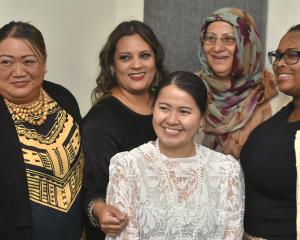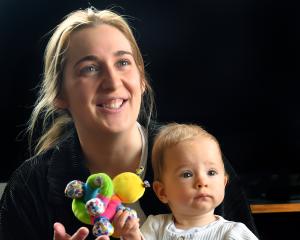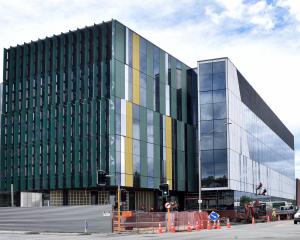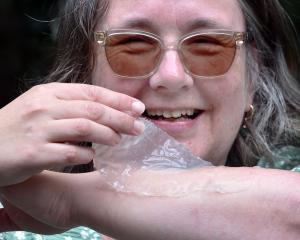
Speaking yesterday during a break in a special super-clinic, urology clinical leader Dr Al Hepburn said he was grateful to patients and staff for making it happen.
"I was thanking [patients] for taking their weekend off and they were throwing it straight back."
The patients expressed gratitude, he said.
General theatre staff as well as urology staff worked through the weekend for the clinic.
Twelve urologists were present — nine from outside Otago-Southland — as well as nursing and sterilisation staff from other centres. The super-clinic marked a turning point.
"It’s in everybody’s mind now and it’s been flagged up as a problem. It’s really given me a lot of power to be able to say to the people who need to know. If there is a problem that starts happening again, I’ll be listened to.
"Whereas in the past that hasn’t been the case.
"I feel like if we ever get into a situation like this again, or it looks like getting to this situation again, I can use this as an example to ensure it doesn’t happen," Dr Hepburn said.
An external review this year said urologists and senior managers had been arguing about the service while waiting lists grew to unacceptable levels. Dr Hepburn said he had been "incredibly concerned" about it.
"I had been making my concerns known. This is a result of my concerns being heard."
Asked why it took so long to be addressed, Dr Hepburn said he could not say, but it was "certainly not through a lack of trying".
DHB management has been eager to portray the super-clinic as a good-news story, allowing staff to be photographed outside the hospital yesterday morning. Commissioner Kathy Grant and deputy commissioner Richard Thomson were helping out, directing patients to where they needed to go.
More than 600 patients were assessed or received investigative or surgical procedures. Another super-clinic weekend was scheduled next month on a smaller scale.
Dr Hepburn said as well as clearing the decks, the super-clinic demonstrated a better way of working.
"What we’ve done is new for Dunedin, seeing and treating at the same time. It should become the standard of care."
Diagnostic procedures such as biopsies should be carried out at the patient’s first specialist appointment.
While the norm in other parts of the country, it had not been happening in Dunedin.
Patients would now be prepared and advised by nurses before their specialist appointment, rather than just turning up with a GP referral. The department now had two nurses, rather than one, and a third was being recruited. Also, a fourth urologist was being recruited, but Dr Hepburn said he remained concerned the department could be understaffed. The joint academic-clinical appointee would work 0.5 full-time equivalent in Dunedin Hospital. The most crucial need was extra theatre time.
"You could get 100 FTEs here but if you only have two [surgical] lists a week it’s not going to work.
"It’s looking positive that we’re going to get a third [surgical list] in the very near future," Dr Hepburn said.
Organised by the Urological Society of Australia and New Zealand under an agreement with the DHB, the clinics’ cost was not immediately available. Urologist Stephen Mark, chairman of the New Zealand division of the urological society, said the clinicians were paid for the weekend but were not motivated by money.
"None of the urologists asked: ‘How much are we being paid?’"
The visiting urologists were from Auckland, Tauranga and Christchurch.
Comments
Apart from an expensive headline grabbing splurge, this super clinic has done nothing to solve the root problem. That is the SDHB has an understaffed urology department, at least in Dunedin.
Over time the backlog of assessments, treatment and surgeries will balloon once more.












